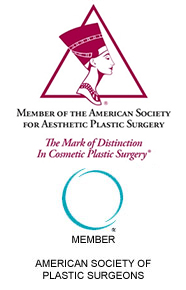As medical technologies have boomed over the past two decades, plastic surgery has made incredible advances both in reconstructing accidental injuries and congenital deformities, and in helping erase the marks, wrinkles and sags of encroaching age. Whether it’s changing a portion of the body to make it look normal or improving a “normal” facet of the body to make it look even more aesthetically pleasing, the goal of the plastic surgeon is to help the patient while adhering to a strict code of ethics.
Dr. Speron’s main goal with plastic surgery is to help his patients look good and feel good about themselves. His focus is to explain all viable options to his patients ranging from surgical to nonsurgical options and making sure they have realistic expectations.

Research indicates that individuals seeking cosmetic surgery may have higher rates of psychiatric conditions compared to the general population. In one study, personality disorders were identified in approximately 53% of cosmetic surgery patients, versus 12% in the general public. Another study found that 51% of patients pursuing cosmetic procedures had a diagnosed psychiatric condition.
Among the most common psychiatric concerns in this group is Body Dysmorphic Disorder (BDD)—a condition where individuals obsess over perceived flaws in their appearance. Additionally, Cluster B and Cluster C personality disorders—including narcissistic, histrionic, and obsessive-compulsive personality disorders—are more frequently encountered in this population.
Given these statistics, psychological assessment is a critical part of the consultation process. Identifying underlying mental health conditions helps ensure that patients have realistic expectations, appropriate motivations, and the emotional stability to undergo elective surgery. When needed, referral to a mental health professional can support the patient’s overall well-being and help guide responsible surgical decision-making.
When I first published The 7 Critical Questions to Ask Before Letting Any Surgeon Touch You, I had no idea that it would be so popularly received. Since its publication, this brief guide has helped thousands like you to more safely navigate the world of cosmetic surgery. The 7 Questions have been updated and a bonus section, Applying the 7 Questions, has just been added. Be my guest to read, learn and share.